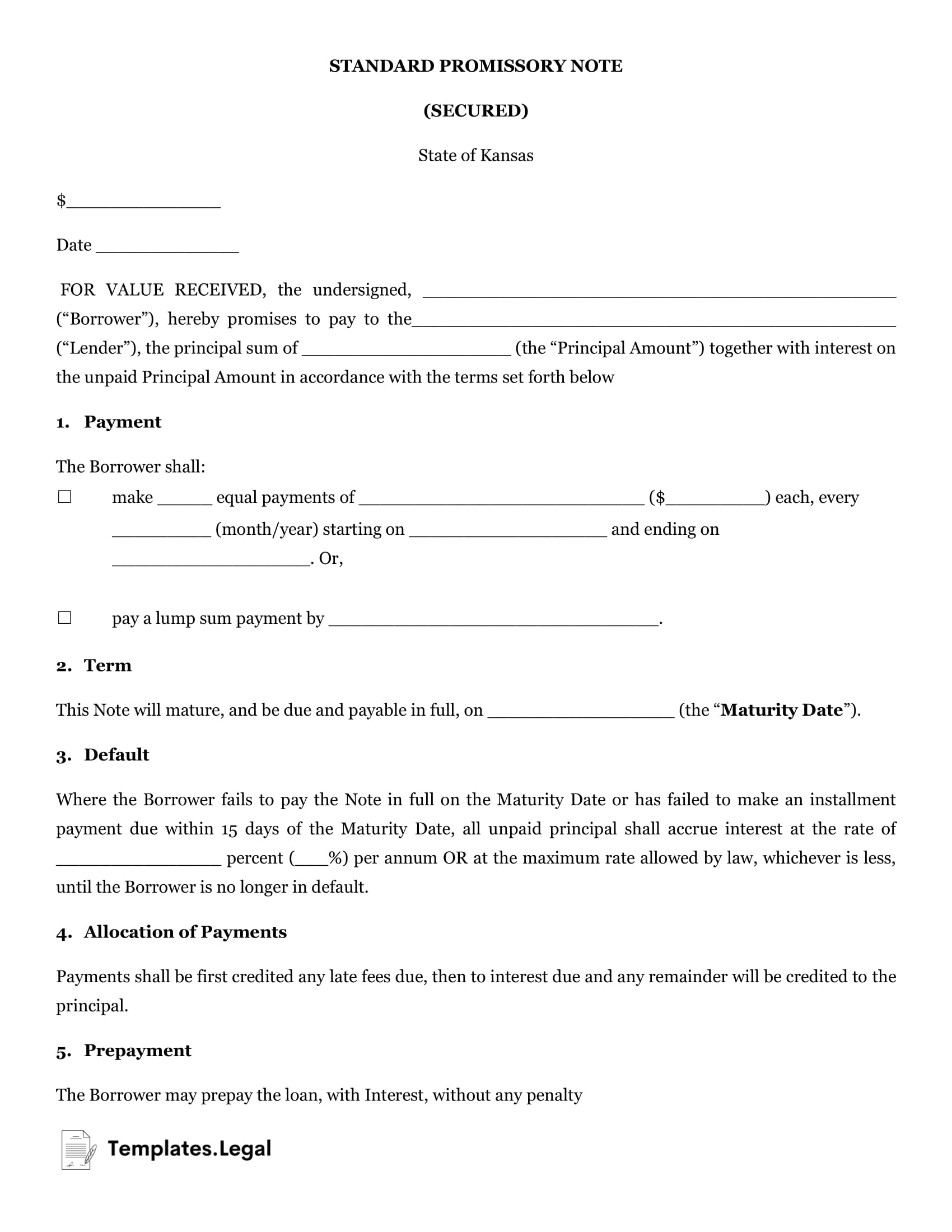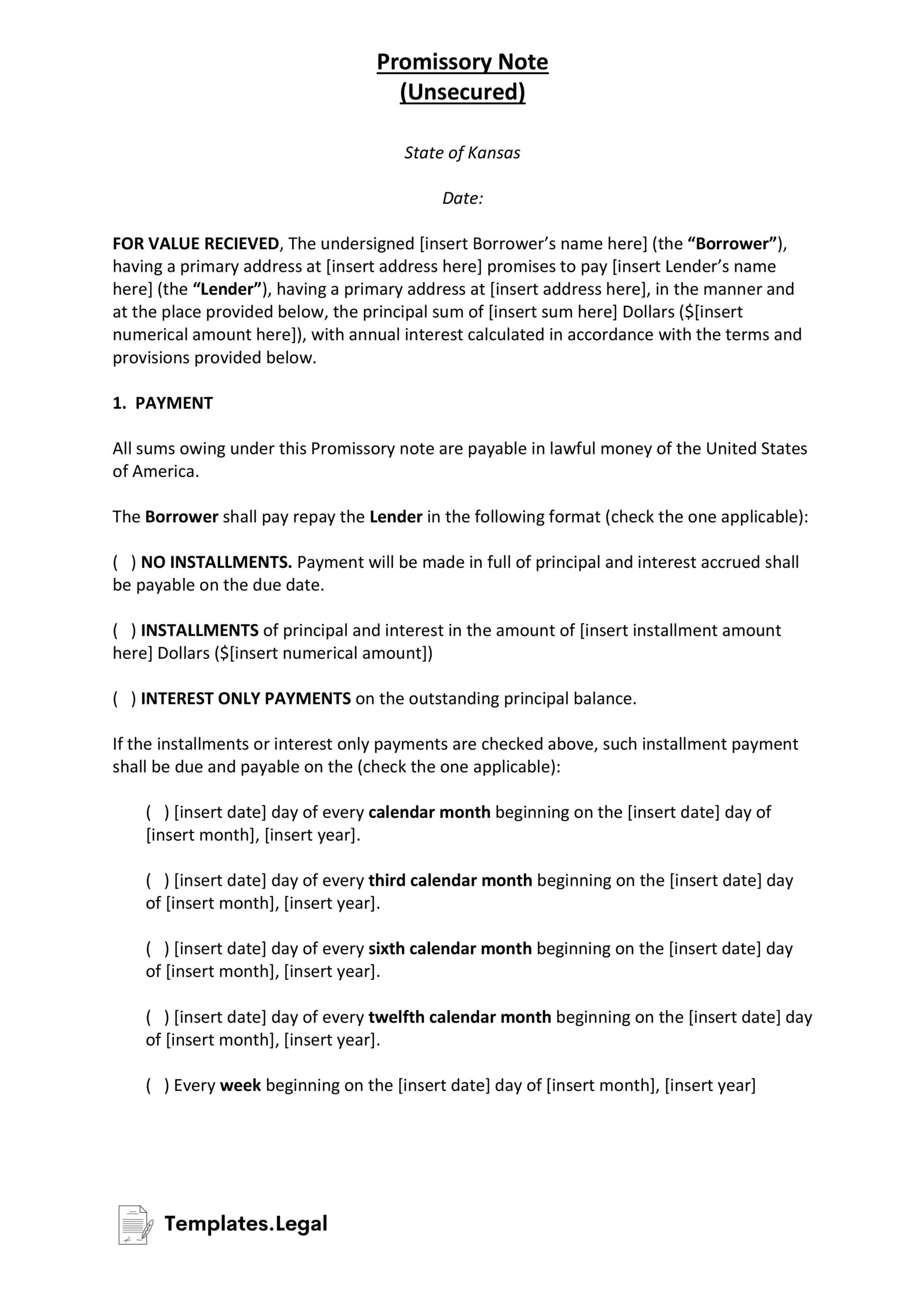Kansas Promissory Note Templates
A Kansas promissory note is an agreement entered into by a lender and borrower. The promissory note outlines conditions of the loan, such as interest rates, payment types, and the amount of the given balance. In Kansas, there are two types of promissory notes: secured and unsecured.
Kansas Secured Promissory Note
An unsecured promissory note has the backing of the borrower’s pledged collateral. This collateral is usually an asset, such as a home, car, or boat. If the borrower defaults on the balance, the lender has the right to place the collateral into security, which helps cover the cost of the unpaid balance.
Kansas Unsecured Promissory Note
An unsecured promissory note Kansas form usually has a greater risk than the secured version. If a borrower fails to repay the loan, it may be harder for the lender to enforce the promissory note. Even if the lender obtains a judgment from the court against the borrower’s assets, the assets may not be sufficient to cover the entire amount of the loan.
With a promissory note template for Kansas, you can create your own documents. A free Kansas promissory note is a viable way to document transactions.


